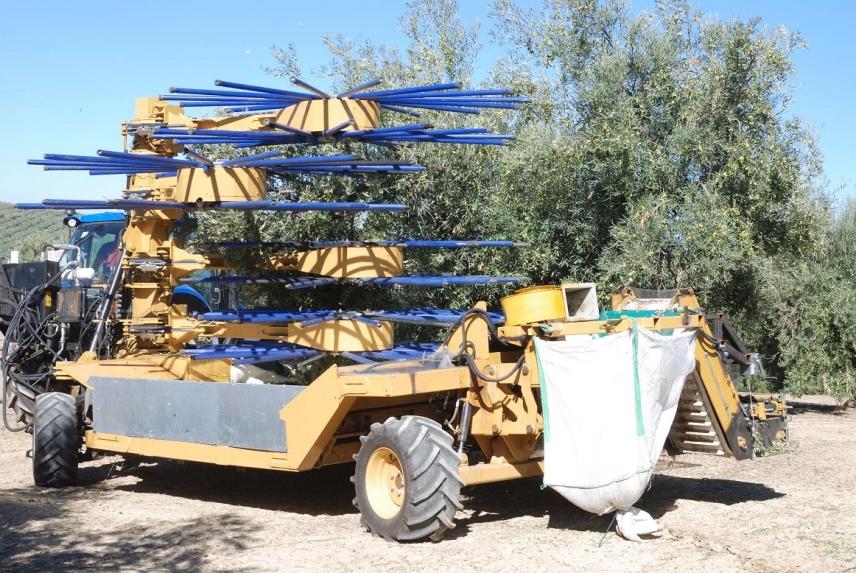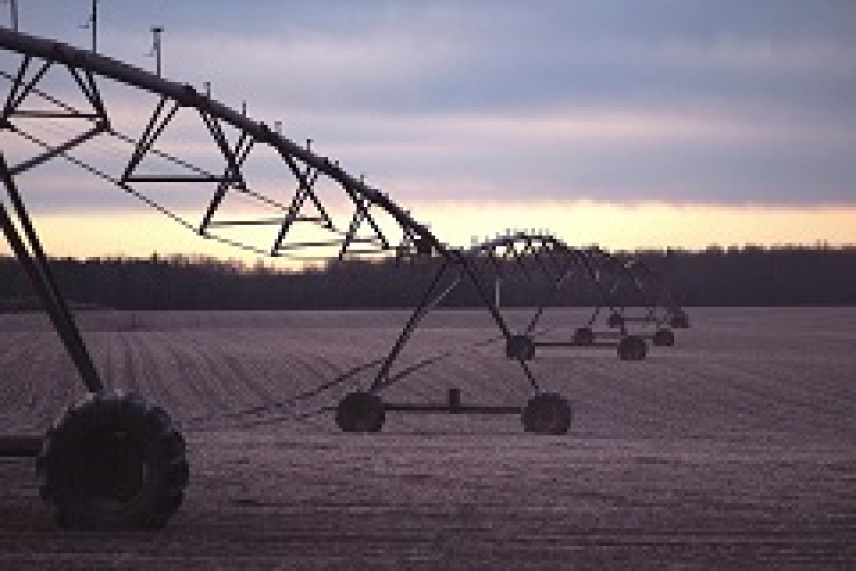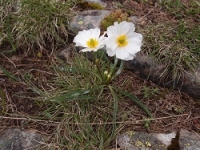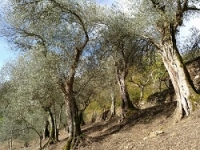A new harvester decreases the cost of olive picking in traditional olive groves
Escrito porThe University of Cordoba Mechanization and Rural Technology research group designed a harvester that improves the profitability of traditional olive farming
Productive traditional olive groves, which make up 70% of Andalusian olive farming, are in a complicated situation in terms of financial sustainability. The lack of mechanization so vital to picking olives has made new already-mechanized plantations such as intensive and superintensive olive groves surpass traditional olive groves, which still spend 40% of their harvesting budgets on picking.
Artificial intelligence saves water for water users associations
Escrito por UCC+IA research group at the University of Cordoba has developed a model based on artificial intelligence techniques that can predict how much water each water user will use
Agriculture uses 70% of the water in the world and this appears to be an upward trend regarding water needs. In this context in which the demand in other industry sectors is increasing as well and the effects of climate change influence ever-increasing water shortages, water saving measures have become an unavoidable challenge if we want to maintain the sector and preserve life.
Water users associations approve remote control watering systems
Escrito por UCC+iResearchers at the University of Cordoba assess the success or failure of installing remote control systems and data measuring in water users associations
From 2005 to 2010, in pursuing plans to modernize irrigation, the first telemetry and remote control watering systems were installed in Spain, in 260 water users associations. With a total area of around a million hectares, these systems began with the aim of facilitating life in the countryside, but have they really achieved their goal?
A new system is designed that improves the quality of frozen horse spers
Escrito por UCC+iThe method reduces ice crystals that form during cryopreservation and affect spermatozoon structure
Cryopreservation is a freezing method that stores spermatozoa to be used for reproduction. Although it is a widespread process, its main issue is the ice formation that occurs during said process, which ends up affecting sperm structure and quality. In order to diminish this harm, usually permeable cryoprotectants are used, which are substances that penetrate tissues and act inside cells in order to stop ice crystals from forming when temperatures go down.
Being asexual in the Alps is an evolutionary advantage for survival
Escrito por UCC+iAn international team explains why specimens of an Alpine flower that reproduce without fertilization are more widespread than their sexually reproducing counterparts
At between 5 and 20 centimeters long, it has white flowers and is the Alpine version of the yellow-flowering Mediterranean buttercup. Ranunculus kuepferi, though fragile in appearance, is one of the plant species that has best adapted to extreme conditions, such as high mountain climate. For thousands of years now, these flowers have decorated the valleys of Europe’s tallest mountains, which are home to more than 30,000 wild species. Learning how this plant adapted and survived could help better understand how living beings respond to changes on Earth. In the case of Alpine buttercups, the key seems to be found in how they reproduce, according to a research project carried out by an international team which included University of Cordoba Botany Professor Diego Nieto Lugilde.
A scientific study characterizes two new Galician olive varieties for the first time
Escrito por UCC+iThe research, done in collaboration with the University of Cordoba, recognizes the potential and high quality of these olive oils
Olive oil is a key element and one of the main sources of fat in the Mediterranean diet. Olive oil is remarkable for its nutrients and Spain has the honor of being the number one producer of this “liquid gold.” Though most Spanish olive oil production takes place in Andalusia, over the last few years other regions within Spain have begun to produce high quality olive oil, using their own varieties native to those regions.







